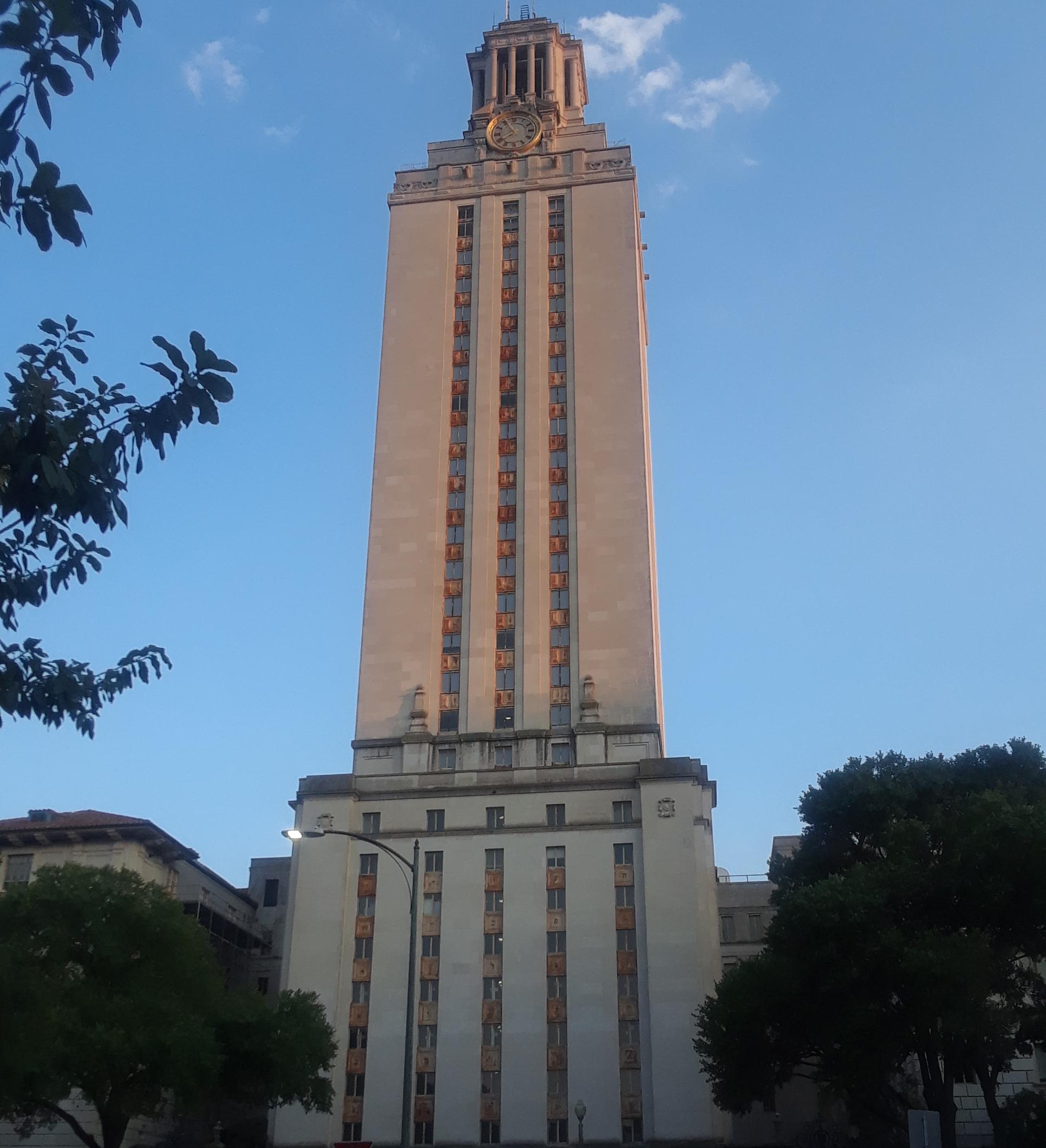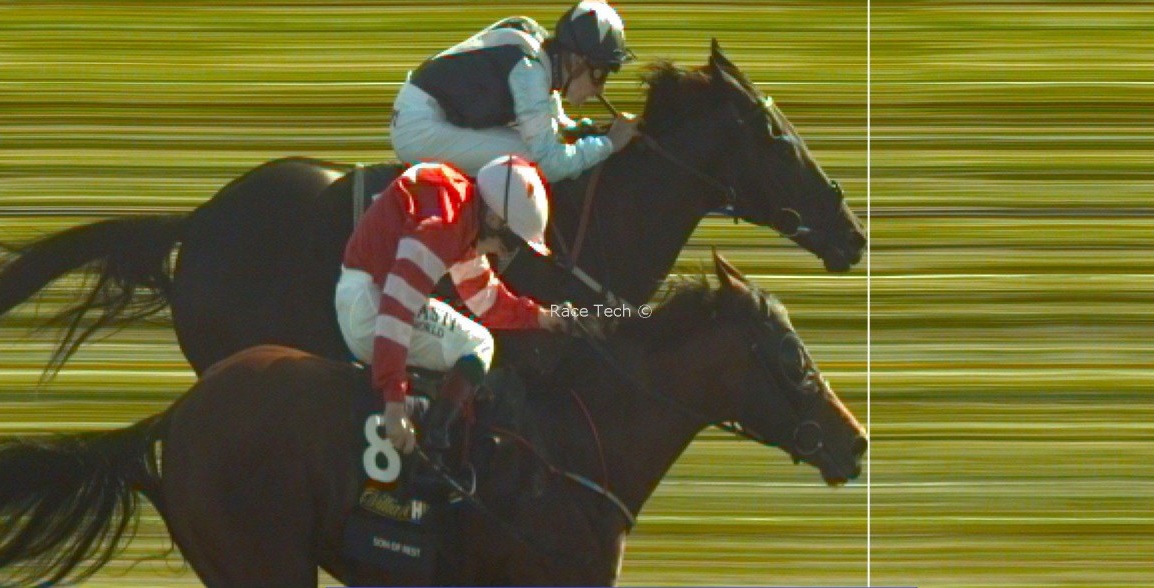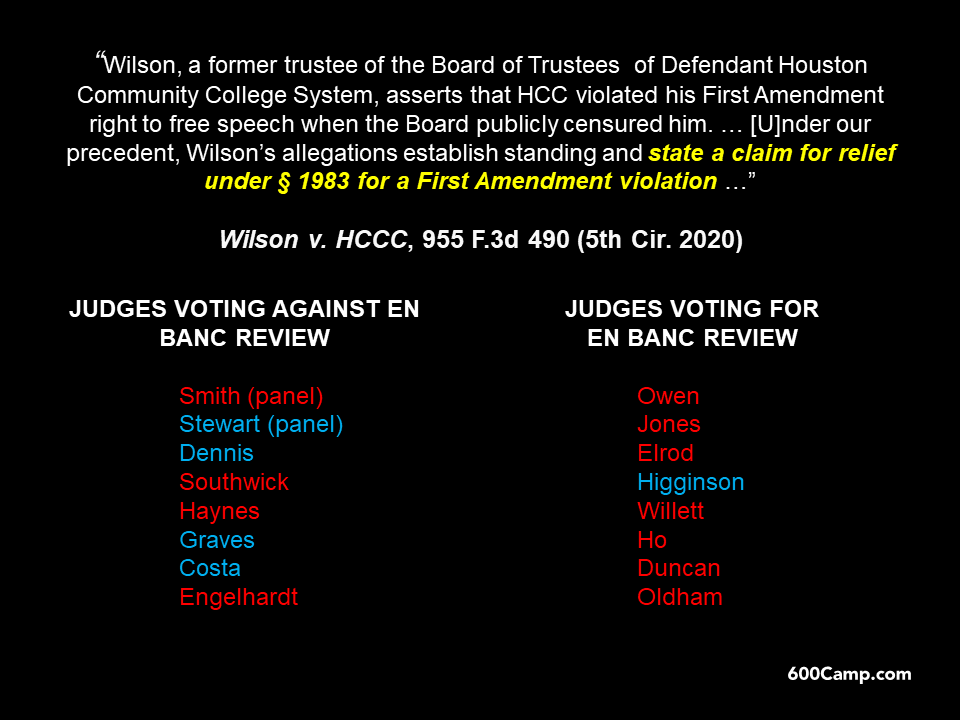 The University of Texas’s rules about campus speech did not fare well in Speech First, Inc. v. Fenves, in which the Fifth Circuit found that a preliminary-injunction action could proceed. The Court found that the case was not moot and stated a strong claim on the merits: “Of course, not every utterance is worth protecting under the First Amendment. In our current national condition, however, in which ‘institutional leaders, in a spirit of panicked damage control, are delivering hasty and disproportionate punishment instead of considered reforms,’ courts must be especially vigilant against assaults on speech in the Constitution’s care. Otherwise, the people may not be free to generate, debate, and discuss both general and specific ideas, hopes, and experiences,’ to ‘transmit their resulting views and conclusions to their elected representatives,’ ‘to influence the public policy enacted by elected representatives,’ and thereby to realize the political and human common good.” No. 19-50529 (revised Oct. 30, 2020) (footnotes omitted).
The University of Texas’s rules about campus speech did not fare well in Speech First, Inc. v. Fenves, in which the Fifth Circuit found that a preliminary-injunction action could proceed. The Court found that the case was not moot and stated a strong claim on the merits: “Of course, not every utterance is worth protecting under the First Amendment. In our current national condition, however, in which ‘institutional leaders, in a spirit of panicked damage control, are delivering hasty and disproportionate punishment instead of considered reforms,’ courts must be especially vigilant against assaults on speech in the Constitution’s care. Otherwise, the people may not be free to generate, debate, and discuss both general and specific ideas, hopes, and experiences,’ to ‘transmit their resulting views and conclusions to their elected representatives,’ ‘to influence the public policy enacted by elected representatives,’ and thereby to realize the political and human common good.” No. 19-50529 (revised Oct. 30, 2020) (footnotes omitted).
Category Archives: Cancel Culture
 Wilson, a trustee of Houston’s community-college system, alleged that his censure by the board was done in retaliation for his exercise of First Amendment rights. A panel found that he had stated a claim that was sufficient to survive a Rule 12 challenge:
Wilson, a trustee of Houston’s community-college system, alleged that his censure by the board was done in retaliation for his exercise of First Amendment rights. A panel found that he had stated a claim that was sufficient to survive a Rule 12 challenge:
The above [Circuit] precedent establishes that a reprimand against an elected official for speech addressing a matter of public concern is an actionable First Amendment claim under § 1983. Here, the Board’s censure of Wilson specifically noted it was punishing him for “criticizing other Board members for taking positions that differ from his own” concerning the Qatar campus, including robocalls, local press interviews, and a website. The censure also punished Wilson for filing suit alleging the Board was violating its bylaws. As we have previously held, “[R]eporting municipal corruption undoubtedly constitutes speech on a matter of public concern.” Therefore, we hold that Wilson has stated a claim against HCC under § 1983 in alleging that its Board violated his First Amendment right to free speech when it publicly censured him.
Wilson v. Houston Community College System, 955 F.3d 490 (5th Cir. 2020) (footnote omitted). A vote to take the case en banc produced an 8-8 tie, with these votes (Senior Judge Eugene Davis, who wrote the panel opinion, was not part of the en banc vote):
